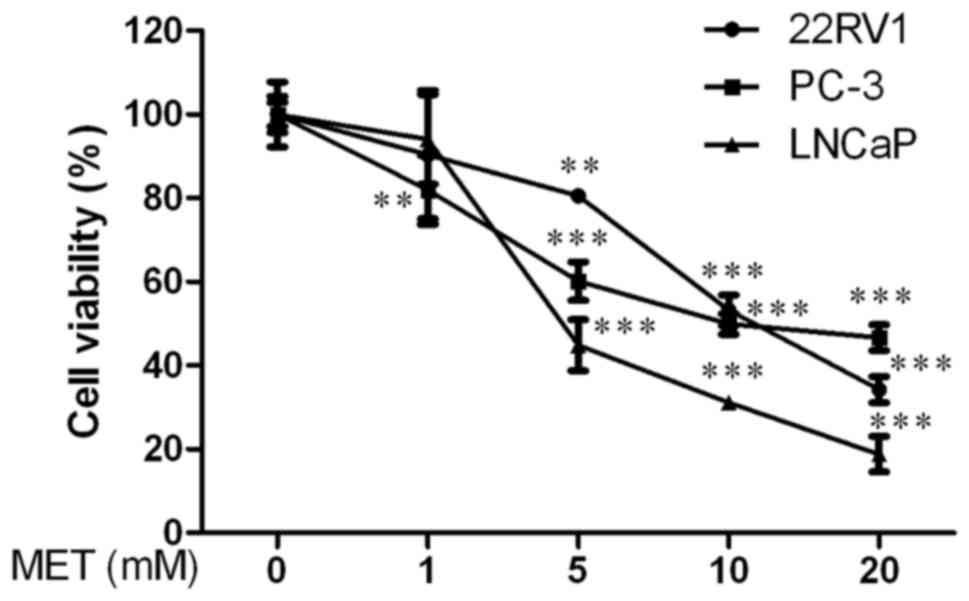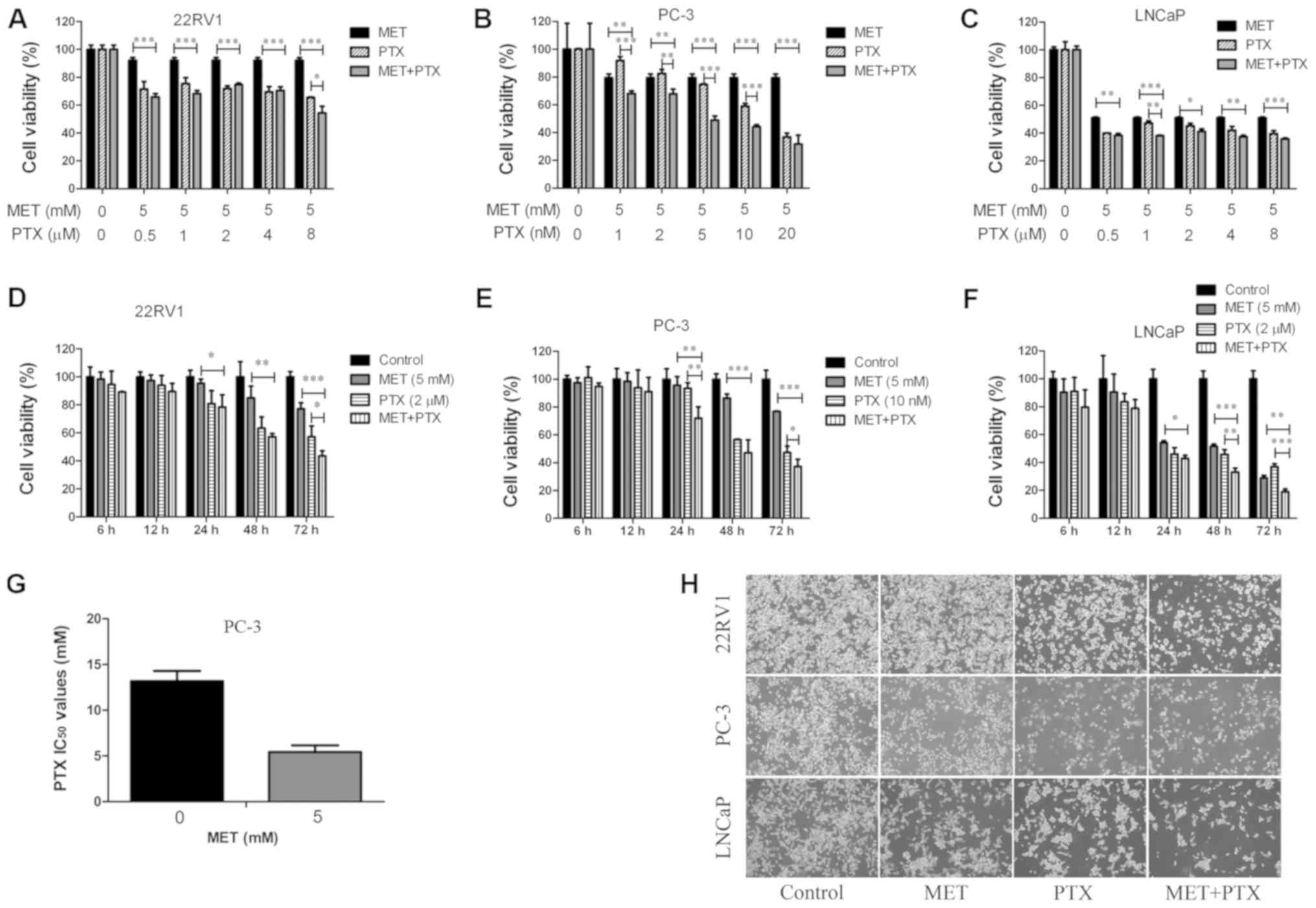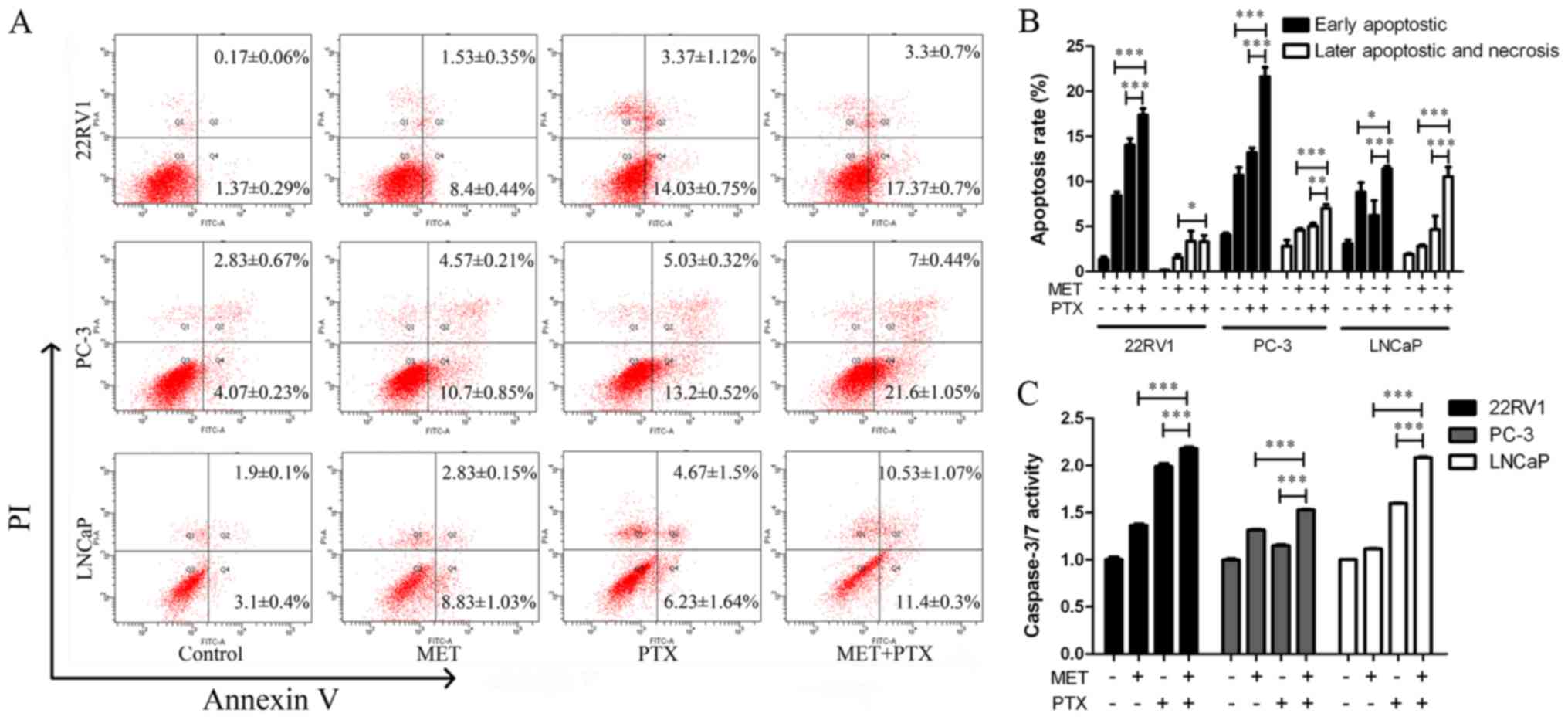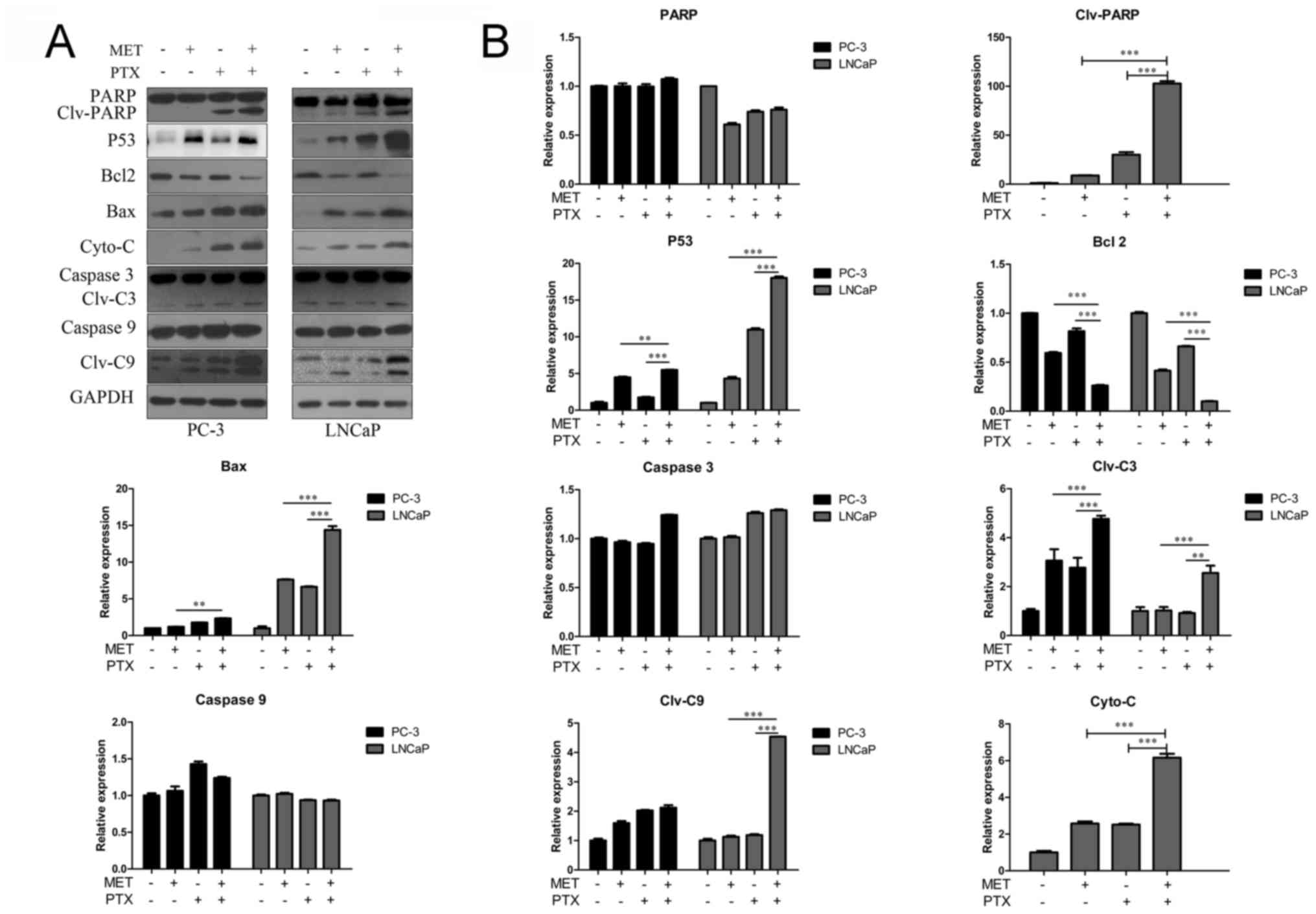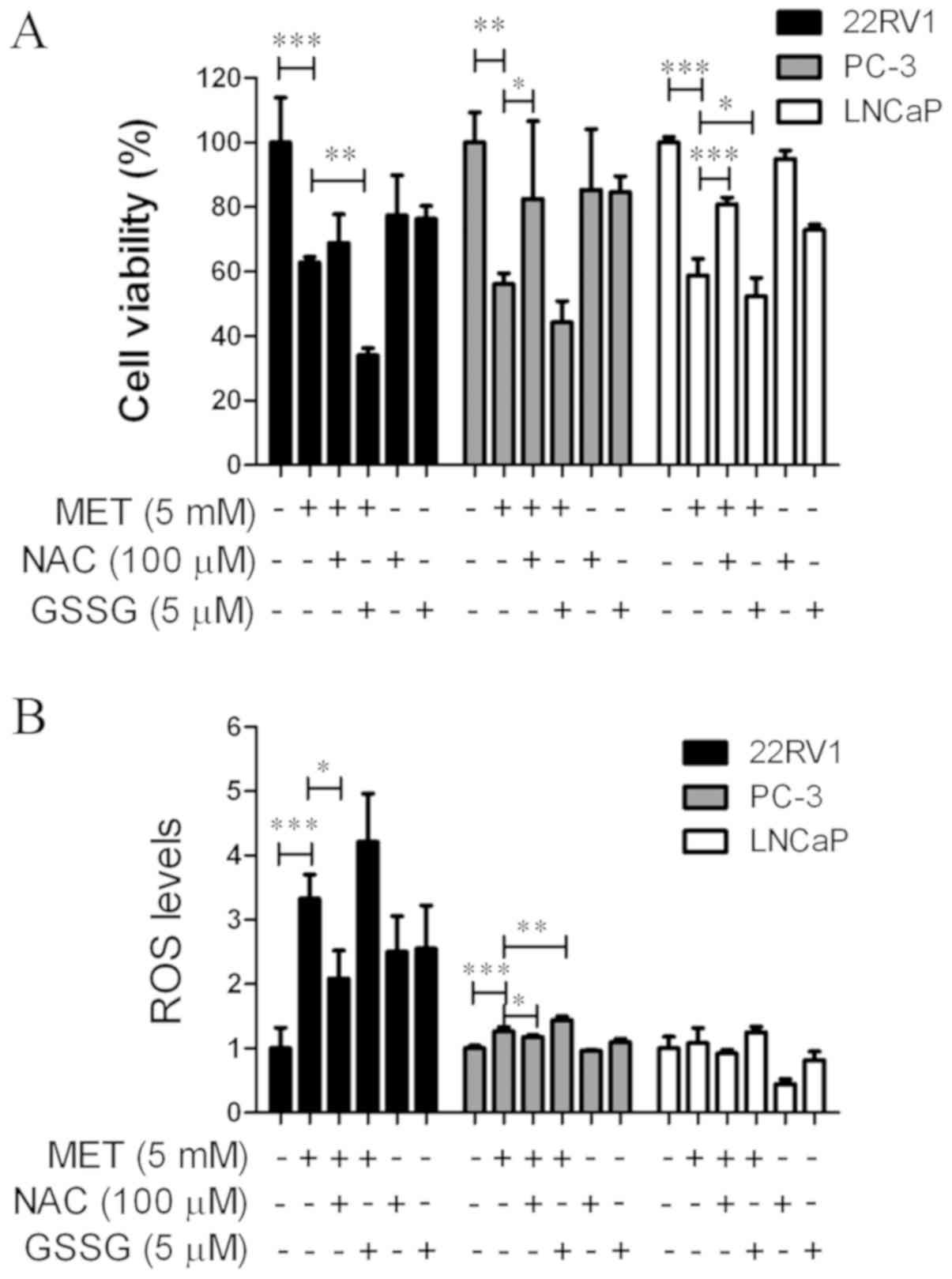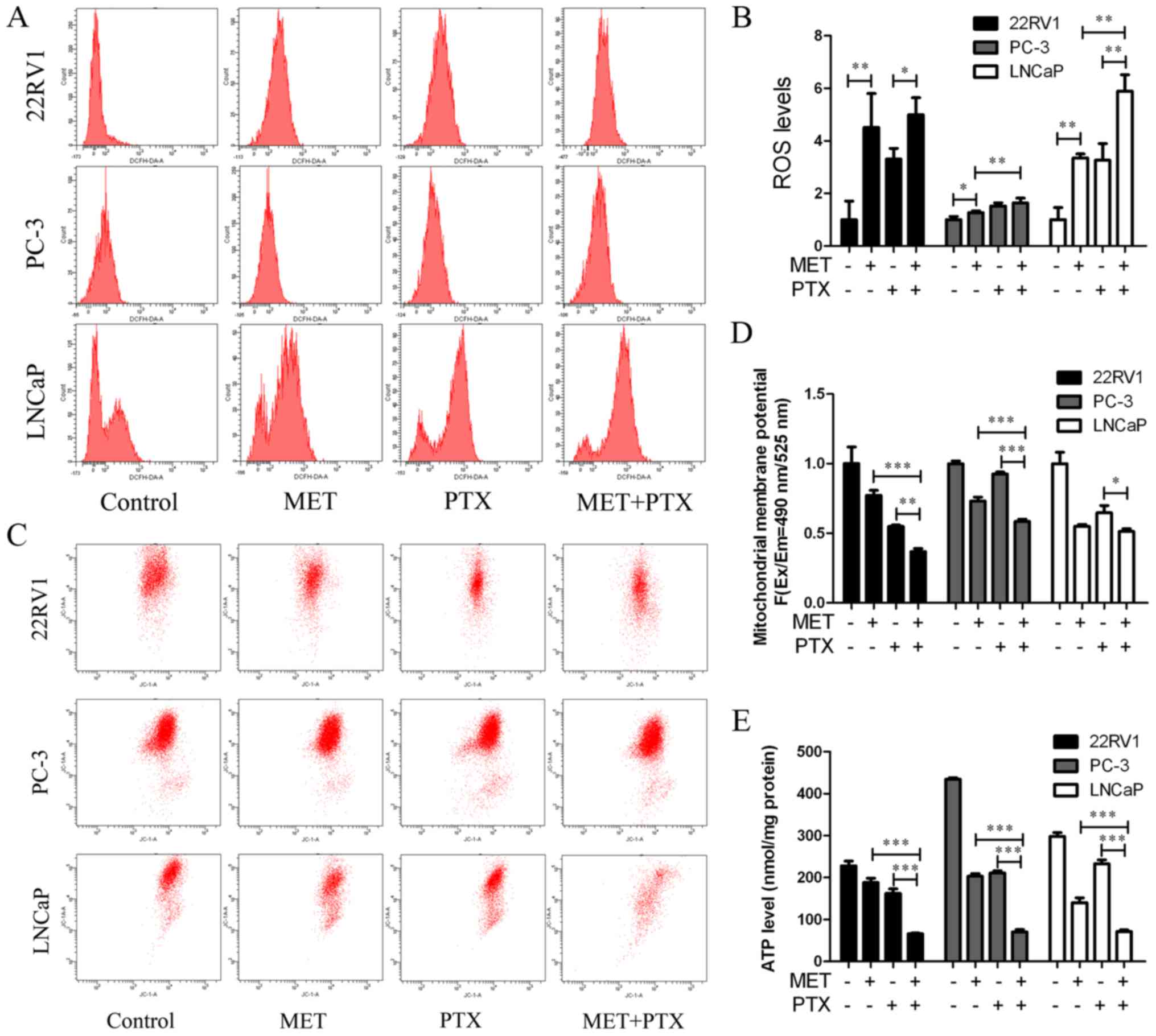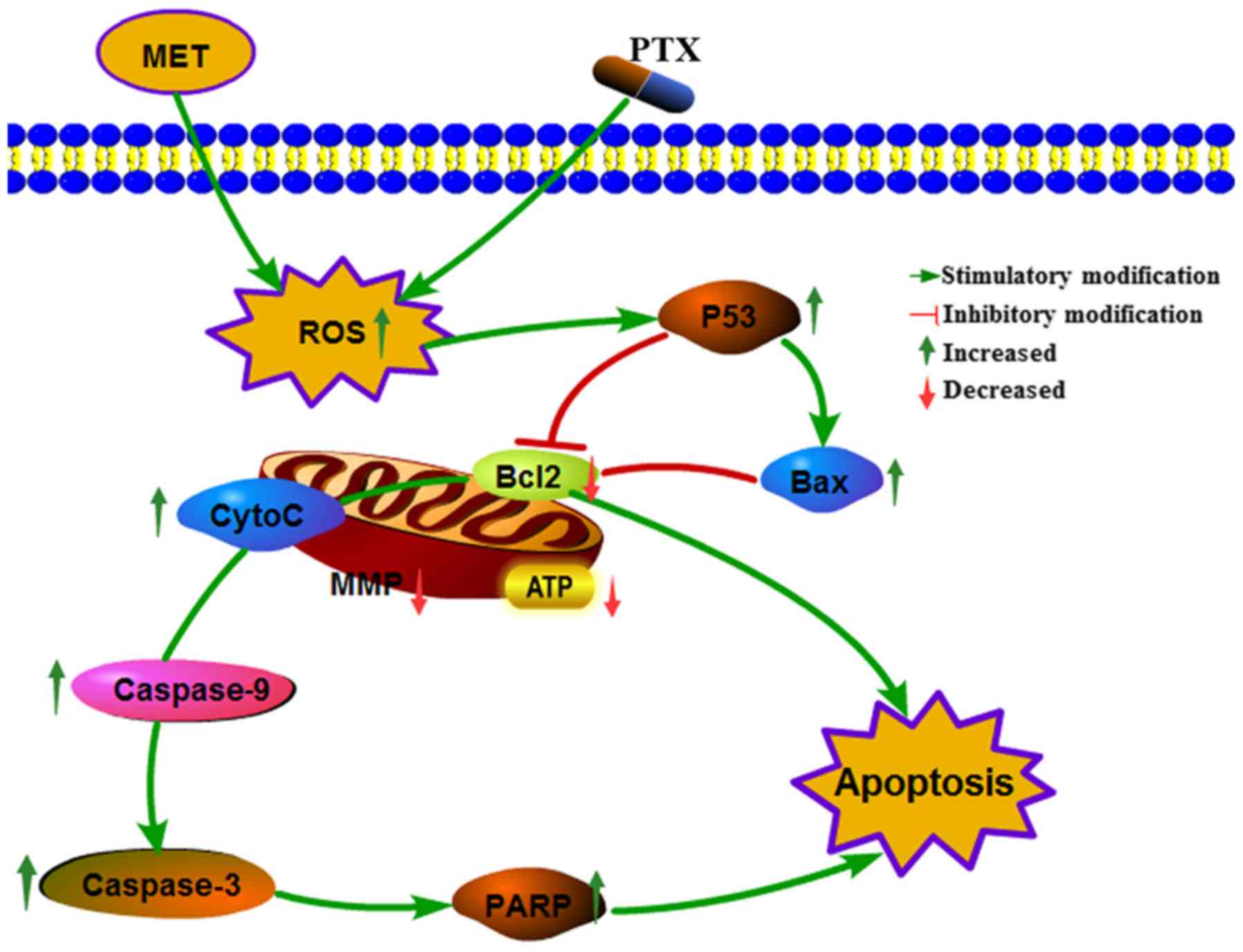|
1
|
Yang Y and Wu XH: Study on the influence
of metformin on castration-resistant prostate cancer PC-3 cell line
biological behavior by its inhibition on PLCε gene-mediated
Notch1/Hes and androgen receptor signaling pathway. Eur Rev Med
Pharmacol Sci. 21:1918–1923. 2017.PubMed/NCBI
|
|
2
|
Crawford ED: Epidemiology of prostate
cancer. Urology. 62:3–12. 2003. View Article : Google Scholar : PubMed/NCBI
|
|
3
|
Siegel RL, Miller KD and Jemal A: Cancer
statistics, 2015. CA Cancer J Clin. 65:5–29. 2015. View Article : Google Scholar : PubMed/NCBI
|
|
4
|
Sandblom G and Varenhorst E: Incidence
rate and management of prostate carcinoma. Biomed Pharmacother.
55:135–143. 2001. View Article : Google Scholar : PubMed/NCBI
|
|
5
|
Zitzmann S, Mier W, Schad A, Kinscherf R,
Askoxylakis V, Kramer S, Altmann A, Eisenhut M and Haberkorn U: A
new prostate carcinoma binding peptide (DUP-1) for tumor imaging
and therapy. Clin Cancer Res. 11:139–146. 2005.PubMed/NCBI
|
|
6
|
Chi K, Hotte SJ, Joshua AM, North S, Wyatt
AW, Collins LL and Saad F: Treatment of mCRPC in the
AR-axis-targeted therapy-resistant state. Ann Oncol. 26:2044–2056.
2015. View Article : Google Scholar : PubMed/NCBI
|
|
7
|
Weaver BA: How Taxol/paclitacel kills
cancer cells. Mol Biol Cell. 25:2677–2681. 2014. View Article : Google Scholar : PubMed/NCBI
|
|
8
|
Sobue S, Mizutani N, Aoyama Y, Kawamoto Y,
Suzuki M, Nozawa Y, Ichihara M and Murate T: Mechanism of
paclitaxel resistance in a human prostate cancer cell line, PC3-PR,
and its sensitization by cabazitaxel. Biochem Biophys Res Commun.
479:808–813. 2016. View Article : Google Scholar : PubMed/NCBI
|
|
9
|
Yang Y, Ma Y, Sheng J, Huang Y, Zhao Y,
Fang W, Hong S, Tian Y, Xue C and Zhang L: A multicenter,
retrospective epidemiologic survey of the clinical features and
management of bone metastatic disease in China. Chin J Cancer.
35:402016. View Article : Google Scholar : PubMed/NCBI
|
|
10
|
Hatoum D and McGowan EM: Recent advances
in the use of metformin: Can treating diabetes prevent breast
cancer? Biomed Res Int. 2015:5484362015. View Article : Google Scholar : PubMed/NCBI
|
|
11
|
Dowling RJ, Goodwin PJ and Stambolic V:
Understanding the benefit of metformin use in cancer treatment. BMC
Med. 9:332011. View Article : Google Scholar : PubMed/NCBI
|
|
12
|
Gou S, Cui P, Li X, Shi P, Liu T and Wang
C: Low concentrations of metformin selectively inhibit
CD133+ cell proliferation in pancreatic cancer and have
anticancer action. PLoS One. 8:e639692013. View Article : Google Scholar : PubMed/NCBI
|
|
13
|
Noto H, Goto A, Tsujimoto T and Noda M:
Cancer risk in diabetic patients treated with metformin: A
systematic review and meta-analysis. PLoS One. 7:e334112012.
View Article : Google Scholar : PubMed/NCBI
|
|
14
|
Pollak MN: Investigating metformin for
cancer prevention and treatment: The end of the beginning. Cancer
Discov. 2:778–790. 2012. View Article : Google Scholar : PubMed/NCBI
|
|
15
|
Del Barco S, Vazquez-Martin A, Cufí S,
Oliveras-Ferraros C, Bosch-Barrera J, Joven J, Martin-Castillo B
and Menendez JA: Metformin: Multi-faceted protection against
cancer. Oncotarget. 2:896–917. 2011. View Article : Google Scholar : PubMed/NCBI
|
|
16
|
Zakikhani M, Dowling R, Fantus IG,
Sonenberg N and Pollak M: metformin Is an AMP kinase-dependent
growth inhibitor for breast cancer cells. Cancer Res.
66:10269–10273. 2006. View Article : Google Scholar : PubMed/NCBI
|
|
17
|
Goodwin PJ, Ligibel JA and Stambolic V:
Metformin in breast cancer: Time for action. J Clin Oncol.
27:3271–3273. 2009. View Article : Google Scholar : PubMed/NCBI
|
|
18
|
Wang LW, Li ZS, Zou DW, Jin ZD, Gao J and
Xu GM: metformin induces apoptosis of pancreatic cancer cells.
World J Gastroenterol. 14:7192–7198. 2008. View Article : Google Scholar : PubMed/NCBI
|
|
19
|
Shank JJ, Yang K, Ghannam J, Cabrera L,
Johnston CJ, Reynolds RK and Buckanovich RJ: Metformin targets
ovarian cancer stem cells in vitro and in vivo. Gynecol Oncol.
127:390–397. 2012. View Article : Google Scholar : PubMed/NCBI
|
|
20
|
Iliopoulos D, Hirsch HA and Struhl K:
Metformin decreases the dose of chemotherapy for prolonging tumor
remission in mouse xenografts involving multiple cancer cell types.
Cancer Res. 71:3196–3201. 2011. View Article : Google Scholar : PubMed/NCBI
|
|
21
|
Abedi H, Aghaei M, Panjehpour M and
Hajiahmadi S: Mitochondrial and caspase pathways are involved in
the induction of apoptosis by IB-MECA in ovarian cancer cell lines.
Tumor Biol. 35:11027–11039. 2014. View Article : Google Scholar
|
|
22
|
Cheng G and Lanza-Jacoby S: Metformin
decreases growth of pancreatic cancer cells by decreasing reactive
oxygen species: Role of NOX4. Biochem Biophys Res Commun.
465:41–46. 2015. View Article : Google Scholar : PubMed/NCBI
|
|
23
|
Ding H, Han C, Guo D, Chin YW, Ding Y,
Kinghorn AD and D'Ambrosio SM: Selective induction of apoptosis of
human oral cancer cell lines by avocado extracts via a ROS-mediated
mechanism. Nutr Cancer. 61:348–356. 2009. View Article : Google Scholar : PubMed/NCBI
|
|
24
|
Khandrika L, Kumar B, Koul S, Maroni P and
Koul HK: Role of Oxidative Stress in Prostate Cancer. Cancer Lett.
282:125–136. 2009. View Article : Google Scholar : PubMed/NCBI
|
|
25
|
Harley ME, Allan LA, Sanderson HS and
Clarke PR: Phosphorylation of Mcl-1 by CDK1-cyclin B1 initiates its
Cdc20-dependent destruction during mitotic arrest. EMBO J.
29:2407–2420. 2010. View Article : Google Scholar : PubMed/NCBI
|
|
26
|
Castilla C, Flores ML, Medina R,
Perez-Valderrama B, Romero F, Tortolero M, Japón MA and Sáez C:
Prostate cancer cell response to paclitaxel is affected by
abnormally expressed securin PTTG1. Mol Cancer Ther. 13:2372–2383.
2014. View Article : Google Scholar : PubMed/NCBI
|
|
27
|
Tudor G, Aguilera A, Halverson DO, Laing
ND and Sausville EA: Susceptibility to drug-induced apoptosis
correlates with differential modulation of Bad, Bcl-2 and Bcl-xL
protein levels. Cell Death Differ. 7:574–586. 2000. View Article : Google Scholar : PubMed/NCBI
|
|
28
|
Lim SJ, Choi MK, Kim MJ and Kim JK:
Alpha-tocopheryl succinate potentiates the paclitaxel-induced
apoptosis through enforced caspase 8 activation in human H460 lung
cancer cells. Exp Mol Med. 41:737–745. 2009. View Article : Google Scholar : PubMed/NCBI
|















